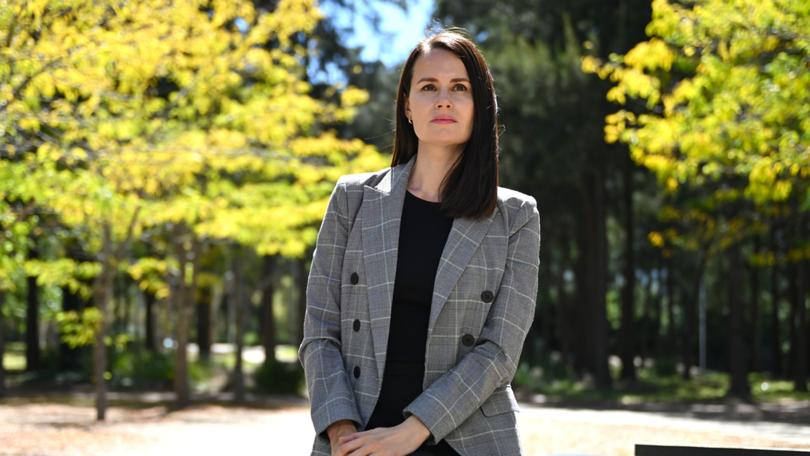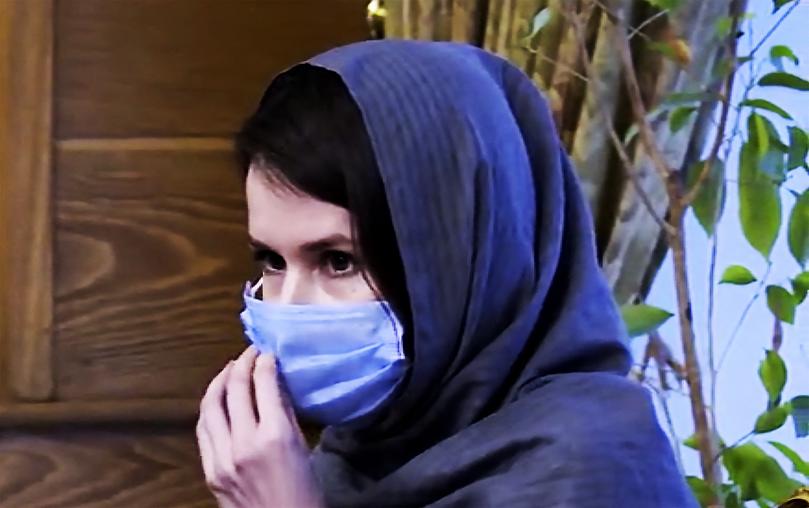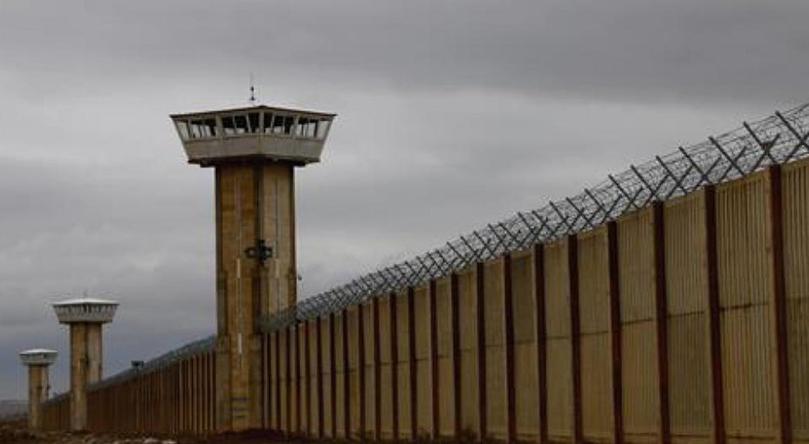‘A real hero’: Kylie Moore-Gilbert hails Russian activists’ plea for Western negotiation in hostage diplomacy
An Australian detained in Iran for more than two years in a high-profile diplomatic hostage case says the government has no other choice than to ‘grit their teeth’ and negotiate.

Australian academic Kylie Moore-Gilbert has hailed Vladimir Kara-Murza as a hero and backed the Russian political activists’ plea for Western governments to “grit their teeth” and continue negotiating for the release of hostage diplomacy victims.
But in her first extended comments on the elaborate deal involving seven countries to free Russian dissidents and US citizens, she acknowledged that such negotiations did encourage rogue nations to snatch more foreigners to use them as bargaining chips.
She was backed by former Canadian diplomat Michael Kovrig – one of the two Michaels detained by the Chinese Communist Party for more than 1000 days – who said that freeing innocents was the right thing to do even if it meant vetoing jail terms for convicted criminals, as well as Australian-Chinese journalist Cheng Lei who all spoke exclusively to The Nightly.
Sign up to The Nightly's newsletters.
Get the first look at the digital newspaper, curated daily stories and breaking headlines delivered to your inbox.
By continuing you agree to our Terms and Privacy Policy.Hostage diplomacy has been on the rise in recent years and is practised by many of Iran’s fellow authoritarian collaborators including China and Russia, including against Australian citizens.
Russian political leader Vladimir Kara-Murza was one of 16 people released as part of the United States’ efforts to broker the release of The Wall Street Journal reporter Evan Gershkovich who was jailed for spying on charges widely seen as a sham.
Mr Kara-Murza said that Russia’s ploy of bargaining Gershkovic for the return of a jailed FSB murderer who killed a Chechen rebel in Berlin in broad daylight was a price worth paying to free innocent activists jailed for challenging Putin, even if the swap was unequal.
Ms Moore-Gilbert agreed but acknowledged it would encourage authoritarian regimes to take more people like her hostage.
“Vladimir Kara-Murza is a real hero and is absolutely someone the world should be listening to,” she said.
“The deal which freed Kara-Murza and Gershkovich, along with others, was probably the ‘best’ in terms of its being able to extract a large number of foreign hostages and domestic political dissidents in exchange for the usual unsavoury characters that Putin demands in return.”
Ms Moore-Gilbert was detained in Iran for more than two years in one of Australia’s highest-profile hostage diplomacy cases.
She was freed after delicate negotiations that involved Iran securing the release from detention of three of its citizens jailed in Malaysia and Thailand over a botched bomb plot.
She pointed to previous prisoner swaps that she said were even more unequal, including those that led to the release of the Russian arms dealer Viktor Bout for the basketballer Brittney Griner in 2022 and the deal to release former US marine Trevor Reed in exchange for a Russian drug smuggler a year later.

The prisoner swap involving Gershkovic was unique in that the US and Western countries involved pushed for Russian dissidents and not just US or Western citizens to be freed, even though Mr Kara-Murza did not specifically seek to be included in the deal.
Ms Moore-Gilbert said while it was “illogical” to think the swaps would not encourage further hostage-taking.
“Of course each time Russia is rewarded, and each time hostage diplomacy pays off, they are incentivised to do so again in the future,” she said.
“As are the Iranians, whose hostage diplomacy has seemingly exponentially increased in recent years, particularly after the 2022 Woman Life Freedom movement.
“All this being said, I’d agree with Vladimir Kara-Murza in that Western countries must grit their teeth and do such deals.
“Leaving innocent citizens to rot in foreign prisons is unconscionable.
“But we need to use all our leverage to conclude smart, strategic deals and focus on deterrence measures too.”
Ms Lei, who was also imprisoned by the Chinese and released last year, agreed and said brokering swaps did encourage more hostage taking, but there were practical steps governments could take.
“One deterrent may be to name and shame the individuals in the system, undertake thorough checks of visa applications to ensure their families cannot come to the free countries whose citizens they intimidate, humiliate and imprison,” she said.
“Through my personal experience, I know that they’re afraid of being exposed for this reason — ironic that they want their families to escape the values they espouse.”
Together with Sean Turnell, who was detained and freed from Myanmar, Ms Lei and Ms Moore-Gilbert have formed the Australian Wrongfully and Arbitrarily Detained Alliance to help lead a debate and shape policies to better counter the practice.
Michael Kovrig was arrested in China in December 2018 following the arrest in Canada on a US extradition warrant of Huawei’s CFO Meng Wanzhou.

He said that during the 1019 days he spent in detention as a human bargaining chip, it meant the world to him that so many were working to get him out.
“The priority must be bringing our citizens home,” he said.
“The most fundamental responsibility of the state is the safety and liberty of its citizens.
“But then that has to be followed by efforts to deny, deter and change norms to raise the costs and consequences for states that take hostages.”
Mr Kovrig gave evidence to a recent Senate inquiry examining how the Australian government can better manage hostage diplomacy cases that is due to be reported at the end of November.
Last year the Biden Administration for the first time used sanctions in retaliation against the detention of Americans in Iran and Russia.

